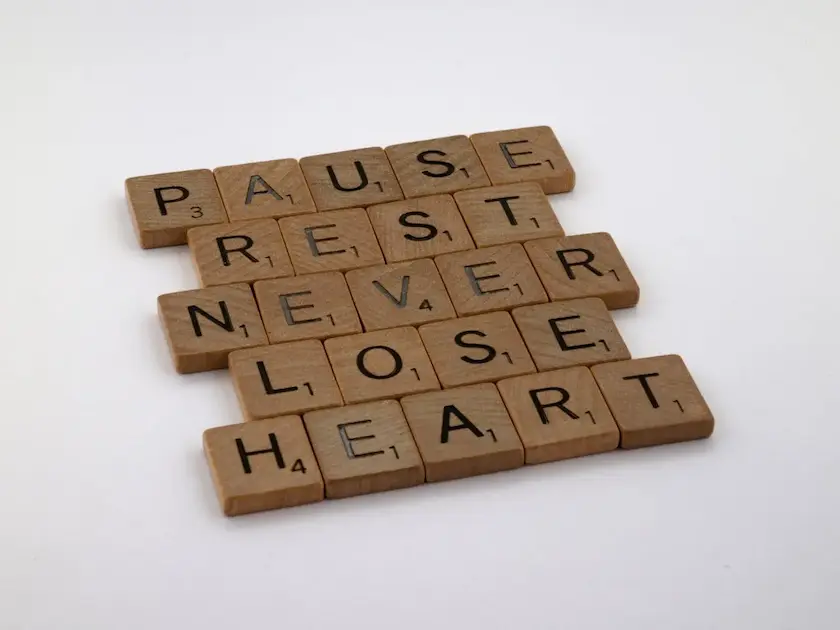How to Lose Weight and Keep It Off
Maybe you’ve tried many times to lose weight, for months at a time. You lose some weight and then after a few months you are back at point zero, or you fail completely. Or maybe you are a beginner in dieting for weight loss. If the latter is the case, you are lucky. Because you can learn good nutrition habits and effective weight management methods from day one and do it correctly. The good news is that nutrition science has evolved over the last two decades, debunking many myths about nutrition.
Generally speaking, most diets fail at some point, either during the process or after the weight loss goal is achieved. Following fad diets can result in eating disorders. In order to establish a good plan that can lead to permanent success, it is essential to examine the self-sabotaging factors that lead to failure. This article focuses on the mindset components for a successful weight loss plan.
Top reasons most weight loss diets fail
1. Too Restrictive
The plan demands so many sacrifices that it feels inhumane to continue the madness. Some common tactics people use when they are desperate to lose weight are: following short-term starvation diets, excluding all their favorite foods and drinks, going on long and exhausting low-calorie diets or some combination of these. Such tactics are a ticket to failure.

If we take away from our daily life the enjoyment of good food, dieting can become a depressing and isolating experience. When one finally succumbs under the pressures of daily life and food deprivation, they eat in a single day the food they would eat in one week. And it will be mostly junk. Nobody wants to experience again the guilt and feelings of failure that follow. It is a good idea not to keep any junk food at home.
2. Lack of support
Following a restrictive diet can be an enormous challenge without the support of our social environment such as our family, friends or partner. Not everyone will endorse our new eating habits and not everyone will be happy to support us. Especially if the change in our lifestyle affects them too.
Living alone makes it easier to keep clear from distractions and temptations. But if you don’t, the support of your close social circle is essential for your success. Focus on the people you trust, those you know will be supportive, and stay away, as much as possible, from the close-minded and the toxic.
Support can come in different forms. Not tempting you, not judging you or your choices, not causing you emotional distress, joining you for lunch. In fact, your diet can be so good that people are feeling jealous of you–losing weight does not have to equal misery.

3. Lack of motivation
Understanding the real motivation behind the desire to lose weight is crucial for your success. You can’t lose 20kg because somebody else wants you to do so or will find you more attractive. Dieting is not fun. What is the reason you want to put yourself through this torture? One method to find out is to start asking yourself why until you get to the root of the problem and you can’t ask another why. Finally, you might realise that you are going to be happier if you lose 10kg and not 20kg or that you are trying to achieve someone else’s goals.
4. Emotional instability
When we are emotionally charged we find many unhealthy ways to cope with our emotions. Overeating is a common self-soothing behavior. Other people bite their nails, others smoke, others drink, others shop, eat, fidget and so forth. All these are behaviors people use to deal with their emotions, calm their anxiety and feel better.
If you are an emotional eater, don’t keep junk food at home, and when you go grocery shopping, don’t be tempted to buy value packs of junk food hoping that you will have only one. Don’t sabotage your efforts.
5. Lack of preparation
Cleaning the cupboards and refrigerator from junk food, is the first step in the process when starting a weight loss diet. But preparation is much more than throwing all of the junk in the bin and buying healthy foods. Preparation requires deeper work. You may feel embarrassed and miserable, but starting another fad diet in a state of panic perpetuates an endless circle of failures. Give yourself a break, relax emotionally and mentally and device a realistic diet plan.
6. Following the crowd
There are many diet gurus out there and so many diet styles. Keto, Paleo, intermittent fasting, chemical diets, low carb, detoxing, the list is endless. Just because a specific diet is popular this year, or your favorite influencer or celebrity is following it and it works for her, it doesn’t mean that it will work for you. We’ve seen influencers following diets that killed them.
Examine the science behind the diet and what it entails following it. Do you think it will work for you in the long term? Does it serve your goals? Does it serve your specific health needs? Does it suit your lifestyle? Research and think before you decide.
The mindset to lose weight for good
Now that we’ve examined the most common reasons behind weight loss failure, let’s set some strategies for success:
1. Examine the actual reasons you gained weight
Although weight gain is usually the result of overeating and a positive energy balance, the underlying causes can vary. Common factors that result in weight-gain are:
- Sedentary lifestyle (office job, working from home)
- Depression and stress in general
- Pregnancy
- Life changes (job loss, retirement, divorce, separation, financial problems)
- Ageing
- Health conditions
- Overfocus on specific goals (study, job promotion)
- Lack of time to exercise
- Lack of discipline
- Following fad diets
Examine why you gained weight and forgive yourself. If you’ve tried to lose weight in the past and were unsuccessful or gained the weight back, examine why this happened. Sometimes it is unavoidable or life takes us by surprise and we must find a way to cope. Show some empathy towards yourself. When you know the “enemy”, it is easier to fight back.
Subscribe to the newsletter
Receive updates about new articles, free resources and service offerings.
2. Focus on the things you are in control of and you can change
Here is a list of 10 things you can change:
- Educate yourself about nutrition. The basics are more than enough; you don’t have to earn a PhD in clinical nutrition. A relevant article is coming soon.
- Set SMART goals: Specific, Measurable, Achievable, Realistic and Time bound. Choose a method to measure your progress. Bathroom scale, tape measure, clothes size, some more niche method or a combination of methods? Sometimes how clothes fit and how you look in the mirror are the best methods.
If you decide to take body measurements, don’t become obsessed with the numbers. Our weight fluctuates significantly day to day because of water retention, food choices, hormones, etc. Allow longer periods between measurements. Once every 3-4 weeks is a good starting point. Set a schedule, e.g. “Every 4 weeks on day “X” I will be taking the “XYZ” measurements in the morning on an empty stomach.” Also, set a reminder and don’t forget to take notes of your measurements. - Make healthier food choices. After you learn the basics of a healthy diet you will be able to make better choices. You don’t have to eat bland food to lose weight. But it is essential to follow some general rules. For an intro to eating for fitness maybe you want to check out our article The Best Food Choices to Reach your Fitness Goals.

- Find different methods to cope with the stress and the setbacks of daily life other than overeating and binge eating. It is very important to be proactive and to be prepared. When bad things happen, don’t let anxiety hijack your brain.
It doesn’t happen overnight but becoming more aware of our feelings improves our ability to stay calm under stressful situations. It becomes easier to recognise a crisis before it reaches its peak. It buys us time to deal with the crisis before it sabotages our progress. Do something relaxing and creative, sleep on it, think and find a reasonable solution.
Hobbies can keep the body and mind occupied and help us forget food. Crafts require focus and keep the hands occupied and away from food! Painting, knitting, sewing, jewellery making and so many other crafts. Pick one that interests you and get creative.
And I can’t stress it high enough, don’t keep junk food at home! - Exercise your discipline. Discipline is like a muscle, you exercise it and it gets stronger. You start small and you grow stronger over time. You can’t control what the results are going to be after 3 months, but it is easier to control what happens today. Take it one day at a time.
- Start exercising and in particular start resistance training today! For more details on how strength training can help you lose weight, check out our article Strength Training for Women – The Benefits of Lifting Weights. And still, if you decide that lifting weights is not for you, there is a large variety of activities to choose from for any age, fitness level or lifestyle. No excuses.
- If a health condition is setting you back, consult with your doctor, she may refer you to a specialist. If ageing and hormonal changes are setting you back, a doctor can help you deal with the symptoms by suggesting supplements or prescribing medicine. If you want to keep it natural and avoid taking medicine or doing hormone replacement therapy (HRT), also do your own research on natural supplements and remedies.
- Avoid people and situations that trigger your emotional eating.
- Do some research on different diets and choose one that suits your lifestyle and health needs. Always follow your doctor’s advice if you have any health condition that requires you to follow a specific diet.
In general, aim for a diet that you can follow long term and that you enjoy. I can’t imagine my life without spaghetti so why ban it from my diet and make my life miserable? There is one exception. There are specific foods that we favor when we are stressed. If spaghetti was my feel-good food I would not keep spaghetti at home! My feel-good foods are sweets like biscuits, doughnuts, croissants etc. So, I don’t keep them at home at all! Don’t keep ‘feel-good’ foods at home.
Keep it simple, especially if you don’t have a cook or you can’t eat at a restaurant every day. Simplicity means that you choose easy to prepare meals, you are ready to eat the same foods a few days per week, that you are ready to eat defrosted and reheated food you cooked on a different day, or to follow a no-cook diet (the no-cook diet is not a raw food diet). - Keep a journal to monitor your food and fluid intake and of course your progress. Again, keep it simple. For your food intake you could create a weekly schedule on a spreadsheet and just tick the boxes every day. Don’t you enjoy crossing out to-do lists? A simple Android app that I like to use to monitor my food intake is the “Diet Diary” app. I have added the nutritional information of the foods I eat regularly and I adjust the portions.
3. Be ready to make adjustments
All diets (and exercise plans) should be evaluated on a regular basis and adjusted as needed. Are you comfortable with your food choices? Does your diet make you feel weak, dizzy, unenergetic? Are you making progress as you planned? The answers to these questions may indicate that it is time to make adjustments.
4. If you “fall”, stand up as soon as possible
When that moment arrives that you feel hungry, emotionally weak, stressed and you are ready to erase all your efforts in the blink of an eye. Remember how many times you did the same in the past, remind yourself of that terrible feeling of failure. Do you want to repeat behaviors that you have regretted before and you will regret them again?
Still, if you experience a lapse, start over again as if it never occurred. Keep an open mind and be ready to evaluate what went wrong and adjust the plan.

5. Set a plan for maintenance
It is very common that after people have achieved a goal they will lose interest and resume their old habits. When you are close to achieving your goal, set a new goal. It could be to maintain your new body weight while eating healthy and enjoying more of your favorite foods, or it could be to build more muscle and increase your basal metabolic rate, or something else. Remember to set SMART goals: specific, measurable, achievable, realistic and time bound. Always have a goal in mind.
Conclusion
Give yourself time to heal from any setbacks and avoid rushing to start another fad diet out of desperation or panic. I’m a big advocate of starting slowly. I have started a diet and fitness plan with one week of rest, yes that was my intro week. During that first week I focused on mindfulness, calmness, doing my maths, setting my goals and my plan. I prioritised making better choices rather than making radical changes. I added light physical activity (active rest) rather than long workout sessions, it was not the time for that yet.
Preparation is very important. I would like to emphasise that this is not a period of grace where you indulge in everything before you get serious with your program. This is a transition period, to allow yourself to make small improvements daily. Focus on the mental side of things. Don’t overeat, don’t rush, don’t panic, substitute the junk with something healthier but tasty. When you are ready mentally and physically, start your real plan.


